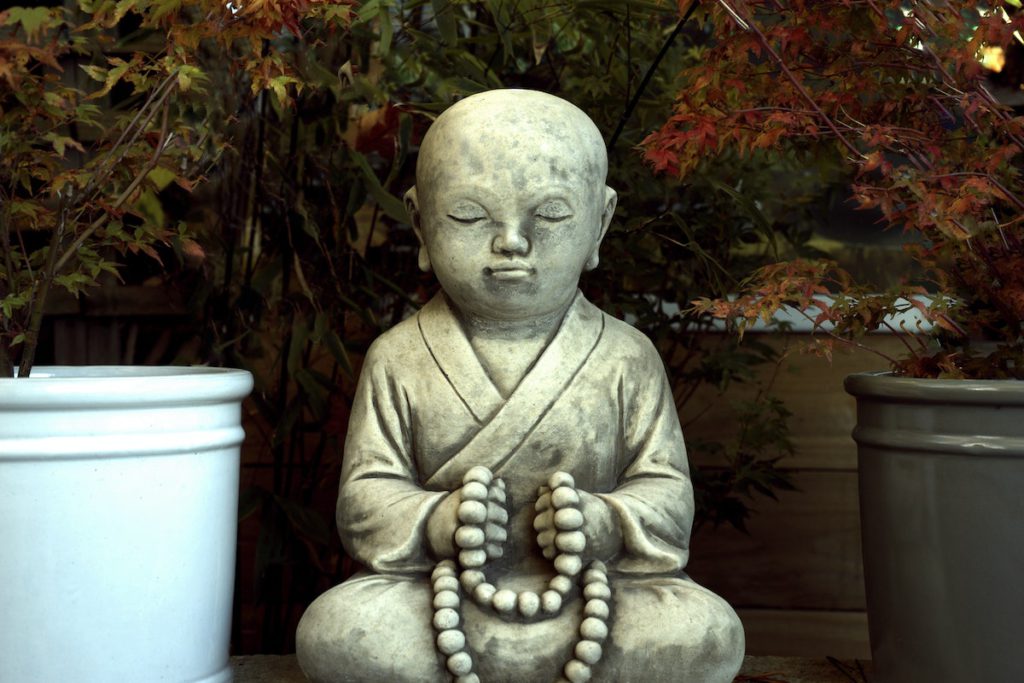Guided meditation is a gateway to stress management, self-awareness, and calmness–all factors that can help us make it through this time of turmoil. Guided meditation helps us detach from constant inputs and reconnect to our minds and bodies. In addition, guided meditation helps clear the mind from the stress and information taking up space in the brain, which is likely to make you anxious too.
Mindfulness meditation helps to direct your focus so that you can release stress-inducing thoughts from occupying your mind. During meditation, you concentrate your attention and release a stream of confusing thoughts that might have been clogging up your thoughts and creating stress. Focusing your attention helps to rid your mind of many distractions leading to stress and anxiety.
When we meditate, our focus remains fixed, and we can remove distorted thoughts often present in times of great stress. Through mindful meditation, our minds can become more competent, focused, and transparent, allowing us to handle stressful and challenging situations better. By using meditation techniques to teach our minds, we build up our mental resources and become more capable.
Various meditation techniques, like mindfulness meditation, can be tailored to meet your needs and decrease stress daily. In addition, many different meditation practices may be effective for managing stress at work. Several powerful ways to manage stress and feel more fulfilled include exercising, getting adequate sleep, having social support, and practising meditation.
If you are feeling stressed, you can do a few things to help lower stress levels, like meditation, physical exercise, relaxation techniques, and healthy coping mechanisms. While there is no one-size-fits-all answer, most experts agree that meditation may help lower stress levels, increase concentration, and contribute to a sense of well-being. In addition, regular breath meditation can help lower stress, improve sleep, and improve overall well-being.
Studies show that meditation helps relieve stress after only eight weeks of regular practice. While there is no universal answer for how long it takes for meditation to decrease stress, most experts agree that just a few minutes of practice may help. Giving yourself a few minutes to practice a little reflection to relieve your stress at work could help.
If you want to decrease work-related stress specifically, you can tackle this head-on by meditating at work. Learning to meditate to relieve stress is not as complicated or mysterious as you think.
Researchers from a renowned Institute found that mindfulness-based techniques, including meditation, reduce stress levels in high-demand workplaces and result in happier, more engaged employees. A 2005 study found that healthcare professionals participating in an eight-week mindfulness meditation program improved their moods and empathy and decreased stress levels. After 16 weeks on a mindfulness-based stress reduction program, participants showed improvements in both their bodies and mind.
In another randomised, controlled trial, a group of college students practising mindfulness and meditation for just two weeks showed a substantial improvement in their ability to concentrate on tasks without becoming distracted. The researchers also found that meditation improved study participants’ memories and reduced stress.
A recent study found that following a six-day meditation retreat, the new meditators experienced a substantial decrease in their stress and depression symptoms for the next ten months following the withdrawal. In addition, one study found that eight weeks of mindfulness meditation helped decrease anxiety symptoms in individuals suffering from a generalised, generalised anxiety disorder, increased positive self-talk, and improved reactivity and stress response.
Scientific studies have found that meditation is an effective treatment for insomnia and may help you achieve restful sleep, which is important for both physical and emotional health. In addition, studies show that visualisation meditation helps decrease stress and anxiety, and meditation may even enhance your mood and well-being. A guided meditation journey can help with better sleep, reduced anxiety, and increased self-awareness.
Through various techniques, possible, meditation produces a state of deep serenity and relaxation. It returns the body to a calm state, helps it heal, and prevents further damage due to the physical effects of stress. Meditation can be a quick-fix stress reliever, helping to turn off your body’s stress response and relax your body physically.
It can calm the body and mind, quieting stress-inducing thoughts that trigger the stress response in the body. The benefits of meditation are immense, as, among other things, meditation reverses your stress response, thus insulating you from the effects of chronic stress. It may similarly help to manage stress and enhance the ability to cope for people caring for family members who have dementia.
Do meditative work over the long haul, and research shows the beneficial changes to your brain function and your ability to deal with emotions may spill over into your daily life — and not just while meditating.
Meditation may also help to heighten your awareness of the present moment, which may help you to be less reactive in stressful situations. Mindfulness meditation can help break down a stress cycle, giving yourself the space to respond rather than react. Meditation brings us back to the present moment, giving us the tools to become less stressed, calmer, and kinder to ourselves and others.
Transcendental meditation can enable your body to enter deep rest and your mind to attain a state of internal peace without needing focus or effort.
